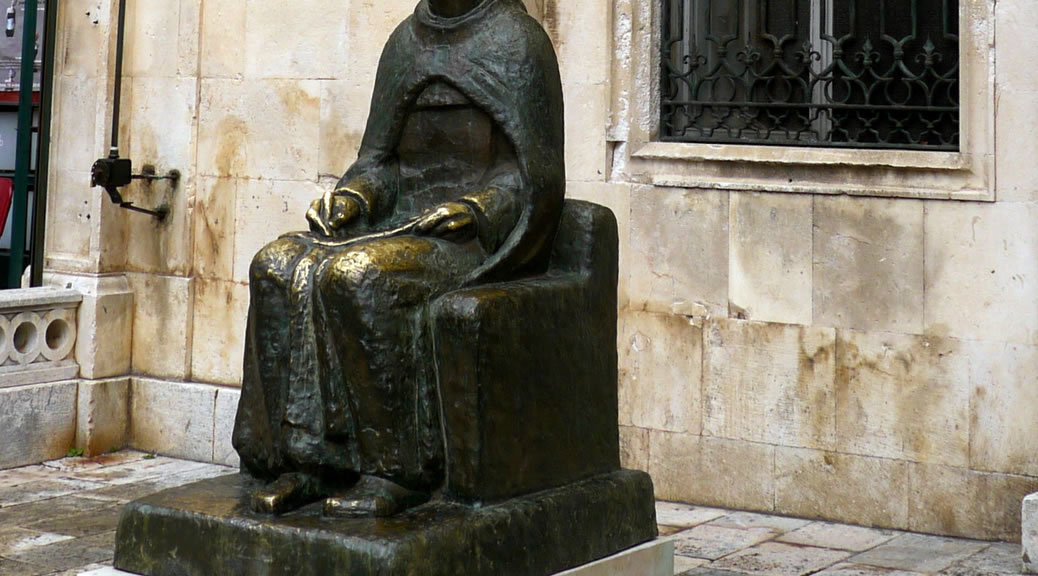Marin Držić, poet, dramatist and director, is the most important name of the Croatian Renaissance literature. He was born around year 1508 in the former Republic of Ragusa where the influences of the Italian Renaissance art were quickly visible in the domains of theatre and literature. Držić soon had the opportunity to develop his dramatic and theatrical skills in the midst of events at Sienna, where he studied Church canonical law.
Renaissance comedy
The years spent in Sienna enabled him a fruitful contact and the direct experience with the “learned comedy”. This genre of Italian Renaissance plays was written in the vernacular and on the paragon of works by ancient Roman authors, notably Plautus and Terrence. The learned comedy was usually based on love intrigues, with the personages chosen from a gallery of stock characters like young lovers, misers, cuckolds, adventurers, senile tyrants and cunning servants.
The most significant of Držić’s plays Skup and Uncle Maroje were written in the framework of the learned comedy in the attire of Dubrovnik. In addition, he produced some masterful examples of pastorals, farce , tragedy, and Petrarchan love poetry.
Držić’s plays manifest the richness of Croatian language in dialogues that are life celebrating, vivacious affirmation of love and freedom, mocking avarice, egoism and petty tyrants – both in the family and in the state.
Political letters
Special chapter in his life, but also in the history of Croatian political thought, belongs to the conspiring political letters that Držić addressed to Cosimo I. Medici, the famous duke of Tuscany. He was trying to persuade the duke to help him overthrow the oligarchy government in his home town while sketching the plan of a new political structure. Držić imagined it as an egalitarian rule of Dubrovnik’s gentry and the lower classes under the protectorate of the Medici family.
Marin Držić died in 1567 in Venice under unknown circumstances and was buried in the Church of St. John and St. Paul.
